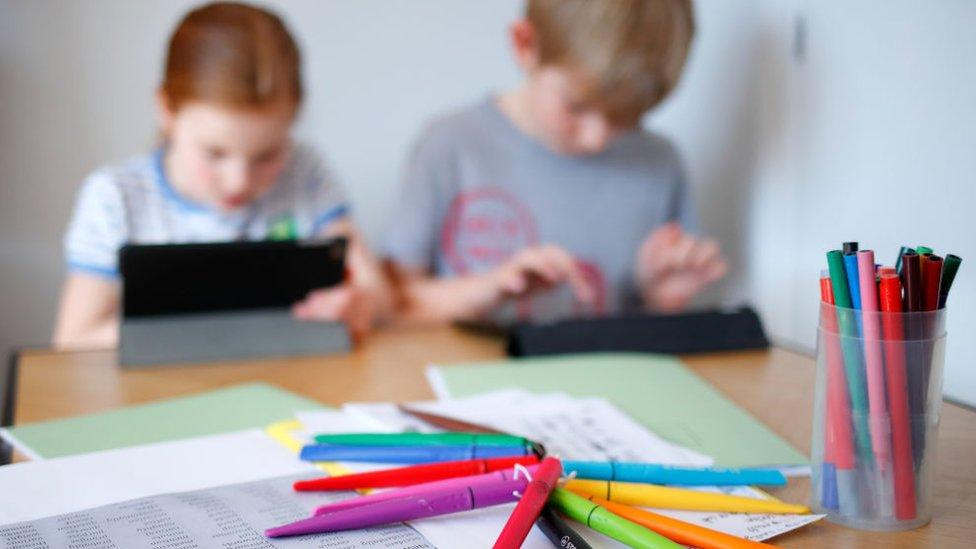Leeds heads drive to ensure 'no-one left behind' in cost of living crisis
- Published
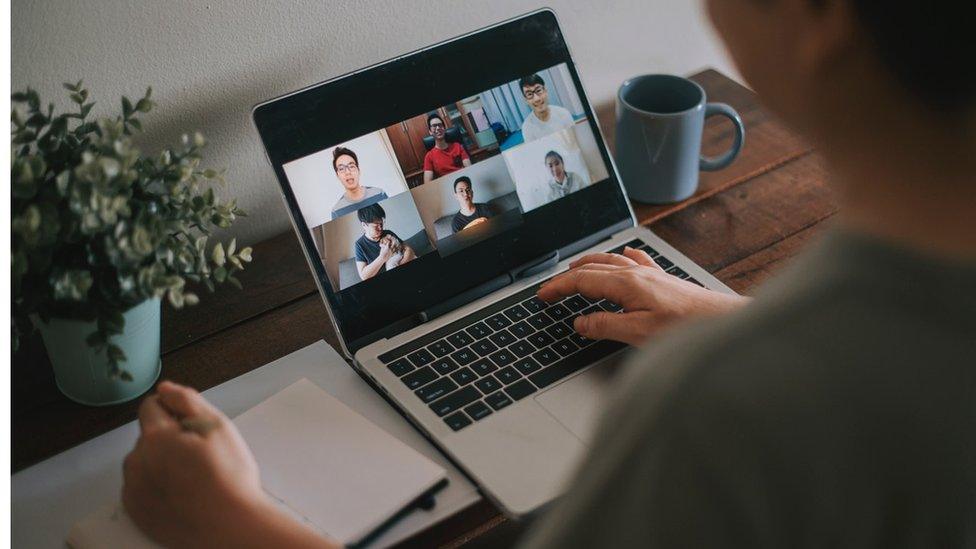
More than two million households in the UK struggle to afford the internet, according to Good Things Foundation
Leeds City Council is leading a national drive to improve internet access amid fears the cost of living crisis will worsen "digital exclusion".
The local authority has been working with hundreds of community organisations to get people connected.
More than two million households in the UK struggle to afford the internet, according to the Sheffield-based charity Good Things Foundation.
The government said it had worked with telecoms firms to offer low-cost deals.
Mekdes Felke, 36, from Harehills, in Leeds said she would be unemployed if local organisations had not stepped in to help.
Ms Felke started a college course using her mobile phone until community groups gave her a tablet to make it easier for her to study and apply for jobs.
She said it had been "very challenging" trying to write essays on her phone using a mobile.
After housing support service Engage Leeds provided her with the reconditioned tablet, she secured an office job at the NHS in Leeds.
'Very difficult'
Ms Felke shares the new device with her nine-year-old daughter, but said they must still rely on mobile data and a dongle as she cannot afford broadband at home.
"It's very difficult - if you have internet access at home you can use it any time," she told the BBC.
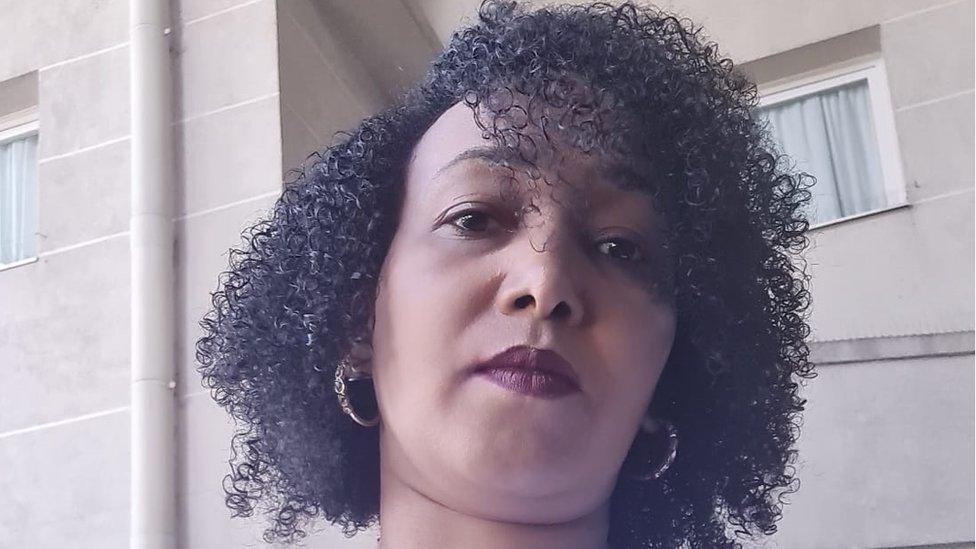
Mekdes Felke said it was "very challenging" not having broadband.
Good Things Foundation, a national charity which seeks to make digital technology more accessible, warned people already disadvantaged through age, education, income, disability or unemployment were those less likely to have internet access.
It has called on the government to treat digital exclusion as a "social issue" and do more to prevent widening inequality.
Helen Milner, the charity's chief executive, said: "There are millions of people right now who are considering turning off their broadband and or their mobile contract because they can't afford it because of the cost of living crisis. That's a massive concern."
Many families faced choosing between heating, food and the internet, she said.
But Ms Milner said the ability to get online was "absolutely not a luxury item - it's a need to have, an essential".
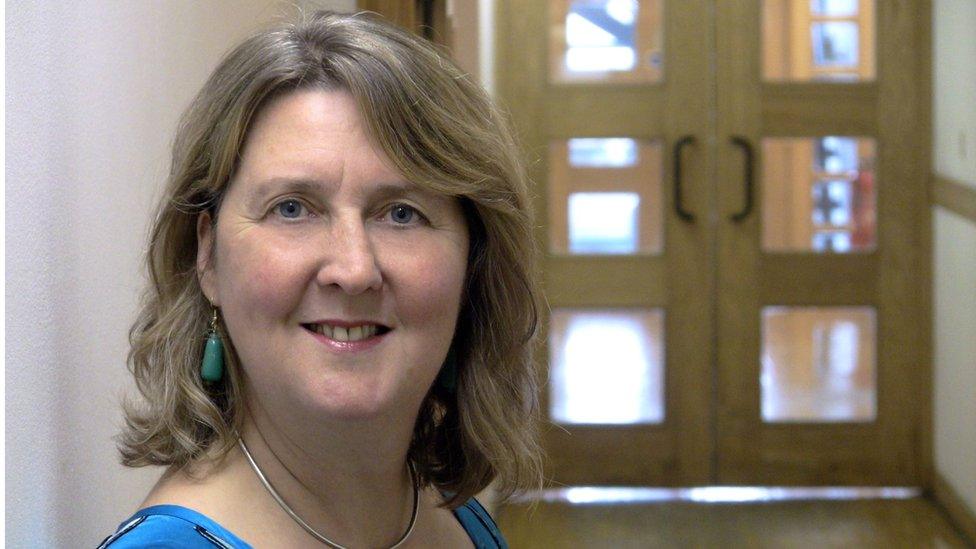
Helen Milner said it was a "massive concern" people were switching off their internet to save money.
Dr Hannah Holmes, of the University of Cambridge's Centre of Housing and Planning Research said the link between between poverty and digital exclusion was "very clear".
"We know that if you have a lower income you're much less likely to be online than somebody with a higher income, and that has a range of knock-on effects," she said.
'Ensuring no-one is left behind'
Thousands of people in Yorkshire are classed as being "digitally excluded" and Leeds health and council bosses are at the forefront of trying to help.
The city's 100% Digital Leeds project has been working since 2018 to get every resident connected to the web.
Its progress has led to the community-based approach being highlighted as best practice by the Local Government Association, which asked the council's team funding to produce a guide for other local authorities.
The council's chief digital information officer, Leonardo Tantari, who oversees the strategy, said the focus was on "ensuring that no-one is left behind".
"It's based on priorities like inclusive growth, so that we ensure that economic growth is spread evenly within the population."
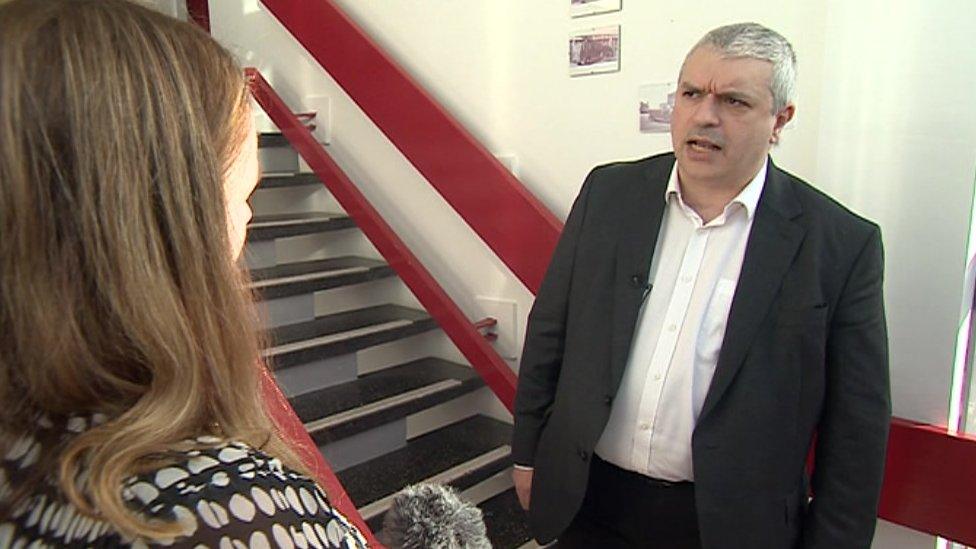
Leonardo Tantari said the council wanted to ensure no one was left behind.
A government spokesperson said: "Thanks to our negotiations with telecoms companies, eligible households in 99% of the UK can already access high-quality but low-cost social tariffs from as little as £10 per month.
"Our work led to these tariffs being introduced quickly and made sure households did not have to wait months or even years for help under a regulated approach."

Follow BBC Yorkshire on Facebook, external, Twitter, external and Instagram, external. Send your story ideas to yorkslincs.news@bbc.co.uk, external.
- Published2 May 2021

- Published28 April 2021
